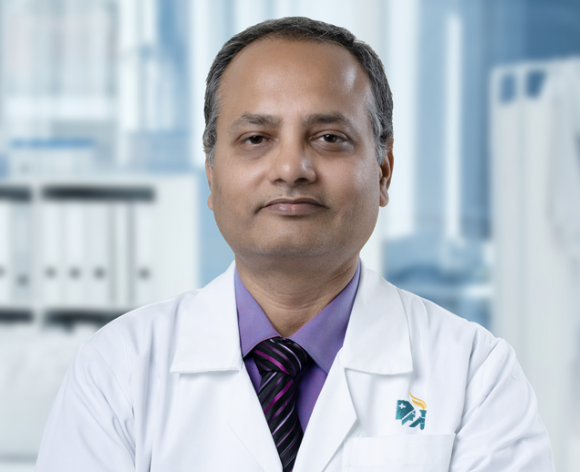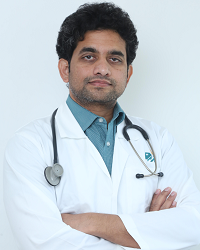Could not find what you are looking for?
- Diseases and Conditions
- Esophageal Cancer - Early Signs, Risk Factors, Diagnosis, and Treatment Explained
Esophageal Cancer - Early Signs, Risk Factors, Diagnosis, and Treatment Explained
Overview: What Is Esophageal Cancer?
Esophageal cancer is a type of cancer that begins in the esophagus — the long, hollow tube that carries food and liquids from your throat to your stomach. Although it is less common than cancers of the breast, lung, or colon, esophageal cancer is considered serious because it often goes undetected until it reaches advanced stages. According to the American Cancer Society, about 22,000 new cases are diagnosed in the United States each year, and it is more common in men than in women.
Early detection is extremely important. When found in the early stages, esophageal cancer is more treatable and may even be curable. Unfortunately, many people experience symptoms only when the disease has already advanced, which makes awareness of risk factors and early signs crucial.
What Are the Types of Esophageal Cancer?
There are two main types of esophageal cancer, each with different characteristics:
- Squamous Cell Carcinoma: Begins in the thin, flat cells lining the esophagus. More common in the upper and middle parts of the esophagus. Strongly linked to smoking and alcohol use.
- Adenocarcinoma: Starts in the glandular cells that produce mucus in the lower esophagus. Often linked to long-term acid reflux (GERD) and Barrett’s esophagus. Currently the most common type in the U.S., especially among men.
- Less common types include small cell carcinoma, lymphoma, sarcoma, and melanoma of the esophagus, but these are very rare.
What Are the Causes of Esophageal Cancer?
The exact cause of esophageal cancer is not always clear. Cancer develops when the DNA inside cells changes, leading them to grow uncontrollably. Over time, these abnormal cells form a tumor that can spread.
Possible causes include:
- Chronic irritation of the esophagus due to acid reflux or smoking.
- Long-term inflammation from medical conditions like Barrett’s esophagus or achalasia.
- Damage caused by alcohol, hot liquids, or certain dietary factors.
What Are the Risk Factors for Esophageal Cancer?
Certain factors increase the likelihood of developing esophageal cancer. These include:
- Lifestyle factors: Smoking, heavy alcohol use, obesity, and poor diet.
- Medical conditions: Gastroesophageal reflux disease (GERD), Barrett’s esophagus, achalasia, or previous head and neck cancers.
- Environmental exposures: Workplace chemicals, nitrosamines in preserved foods.
- Genetic factors: Family history of esophageal or gastrointestinal cancers.
- Demographics: More common in men, people over 55, and in certain geographic regions (e.g., Asia and parts of Africa).
What Are the Symptoms of Esophageal Cancer?
Early esophageal cancer often causes no symptoms. As the tumor grows, it can narrow the esophagus and interfere with swallowing.
Common early signs:
- Difficulty swallowing (especially solid foods)
- Chest discomfort or burning sensation
- Unexplained weight loss
- Persistent heartburn or indigestion
Advanced symptoms:
- Painful swallowing
- Hoarseness or chronic cough
- Vomiting blood or passing black stools (signs of bleeding)
- Feeling of food stuck in the throat or chest
- Fatigue and weakness due to poor nutrition
Anyone experiencing persistent swallowing problems or unexplained weight loss should seek medical attention promptly.
How Is Esophageal Cancer Diagnosed?
Doctors use several methods to detect and confirm esophageal cancer:
- Upper Endoscopy (Esophagoscopy): A doctor inserts a long, flexible tube with a camera (endoscope) down the throat to look inside the esophagus for abnormal areas.
- Biopsy: During the endoscopy, a doctor uses tools to remove a small sample of tissue from any suspicious areas. A pathologist then examines the tissue under a microscope to confirm a cancer diagnosis and identify the type of cancer.
- CT scan: Provides detailed images of the chest, abdomen, and pelvis to assess the extent of the tumor and check for cancer spread (metastasis).
- PET Scan: Uses a small amount of radioactive sugar to highlight cancer cells, helping to detect if the cancer has spread to other organs.
- Endoscopic Ultrasound (EUS): Combines endoscopy with ultrasound technology to get highly detailed images of the esophageal wall, helping to determine the tumor's invasion depth and to biopsy suspicious lymph nodes.
- Barium Swallow: An X-ray test where you swallow a barium liquid to coat the esophagus, which can help visualize the tumor.
These tests help doctors confirm the diagnosis and plan treatment.
Staging of Esophageal Cancer
Staging describes how advanced the cancer is:
- Stage 0 (Carcinoma in situ): Abnormal cells only in the inner lining.
- Stage I: Cancer is in the lining and maybe part of the wall.
- Stage II: Tumor has spread deeper into the esophagus or to nearby lymph nodes.
- Stage III: Cancer involves deeper tissues and more lymph nodes.
- Stage IV: Cancer has spread (metastasized) to distant organs like the liver or lungs.
Grading refers to how abnormal the cancer cells look under a microscope, indicating how aggressive the cancer may be. Staging and grading are vital because they guide treatment choices and help predict outcomes.
What Are the Treatment Options for Esophageal Cancer?
Treatment for esophageal cancer depends on the stage, overall health, and personal preferences. Often, a combination of treatments is recommended.
- Surgery: For early-stage cancers, a surgeon may remove the tumor and a small amount of surrounding healthy tissue. For advanced cancers, a larger portion of the esophagus and nearby lymph nodes may be removed in a procedure called an esophagectomy, with the remaining esophagus reconnected to the stomach.
- Chemotherapy: Uses powerful drugs to kill cancer cells. Given before surgery (neoadjuvant), after surgery (adjuvant), or for advanced disease. Side effects may include nausea, fatigue, hair loss, or increased infection risk.
- Radiation Therapy: High-energy beams target cancer cells. Can be combined with chemotherapy (chemoradiation) for better results. Side effects include skin irritation, swallowing pain, fatigue.
- Endoscopic Therapies: For very early-stage cancers or high-grade dysplasia, treatments like endoscopic mucosal resection (EMR) and endoscopic submucosal dissection (ESD) can remove the abnormal tissue through an endoscope. Radiofrequency ablation (RFA) can also destroy abnormal areas.
- Targeted Therapy: Drugs that attack specific cancer cell proteins or pathways. Example: Trastuzumab for HER2-positive esophageal cancers.
- Immunotherapy: Boosts the body’s immune system to fight cancer. Drugs like pembrolizumab may be used in advanced cases.
Proton Therapy: When Is It Applicable?
Proton therapy is a type of radiation therapy that uses protons instead of X-rays. It is more precise and may reduce damage to surrounding tissue. It is useful for esophageal tumors near critical organs like the heart and lungs.
What Is the Prognosis for Esophageal Cancer?
Prognosis depends on stage at diagnosis, overall health, and treatment response.
- Localized cancer (confined to the esophagus): 5-year survival rate about 45–50%.
- Regional spread (to nearby lymph nodes): About 25–30%.
- Distant metastasis: Around 5–7%.
Early detection significantly improves survival. New therapies such as immunotherapy are improving outcomes for advanced cases.
Screening and Prevention of Esophageal Cancer
Routine screening is not recommended for the general population, but people with high risk factors — such as Barrett’s esophagus, chronic GERD, or strong family history — may benefit from regular endoscopy.
Prevention strategies:
- Quit smoking and avoid alcohol abuse.
- Maintain a healthy weight.
- Treat acid reflux effectively.
- Eat a balanced diet rich in fruits, vegetables, and whole grains.
- Avoid extremely hot beverages and processed meats.
For International Patients
People from around the world come to Apollo Hospitals for the treatment of esophageal cancer. Our international patient services team will guide you all the way from seeking the first virtual connect all the way to treatment in India and then returning home post treatment.
Services include:
- Medical opinions and scheduling
- Pre-arrival medical review of reports and imaging.
- Travel and logistics
- Assistance with visa invitation letters, airport transfers, and nearby accommodation options.
- Dedicated international patient coordinators to guide through each step.
- Language and cultural support
- Interpreter services in multiple languages.
- Clear, simple explanations at every stage with written care plans.
- Financial coordination
- Transparent treatment estimates and packages when possible.
- Support with international payment methods and insurance coordination.
- Continuity of care
- Shared records, imaging, and treatment summaries for home doctors.
- Telemedicine follow-ups for convenience after returning home.
Frequently Asked Questions (FAQs)
1. What is the survival rate for esophageal cancer?
The 5-year survival rate varies widely based on the stage. Early-stage cancer may have up to 50% survival, while advanced stages have lower rates.
2. What are the common side effects of treatment?
Side effects may include fatigue, nausea, swallowing difficulty, hair loss, and increased risk of infections, but supportive care helps manage these.
3. Can esophageal cancer come back after treatment?
Yes, recurrence is possible. Regular follow-ups and scans are essential for early detection of recurrence.
4. How long is the recovery time after surgery?
Recovery can take 6–12 weeks, depending on the type of surgery and individual health. Patients may need dietary adjustments during this time.
5. Can esophageal cancer be cured?
Yes, cure is possible in early stages, and in advanced stages, treatment aims to control the disease and improve quality of life.
6. How much does treatment cost?
Costs vary depending on treatment type, hospital, and country. In India, treatment at Apollo Hospitals is generally more affordable compared to Western countries while maintaining international standards.
7. Are there alternative or complementary therapies?
While not a substitute for standard care, supportive therapies like nutrition counseling, pain management, and relaxation techniques can improve quality of life.











